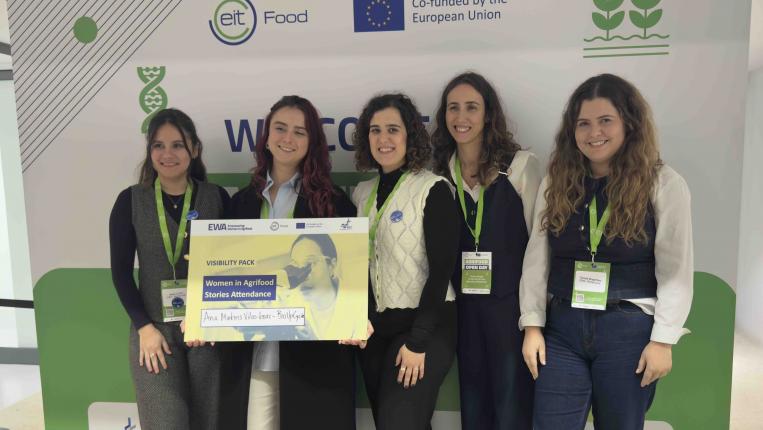Another edition of the Comendador Arménio Miranda Mentorship Program has concluded with the presentation session of innovative food product projects developed by Master's students in Food Engineering at the Faculty of Biotechnology, Universidade Católica Portuguesa.
This program aims to motivate and challenge Master's and Postgraduate students of the Faculty of Biotechnology to identify and apply the latest food trends, aligned with health and well-being requirements, in an increasingly critical environmental context. Participants were challenged to develop a new product or prototype in the agri-food sector, considering priorities such as environmental reconversion and regeneration, innovation and consolidation of new food trends within the context of the circular economy, and the closer alignment of the agri-food industry with academia.
One of the standout groups included Inês Morgado, Beatriz Coelho, and Ana Inês Santos with their project "CremaFlor". CremaFlor consists of a range of three products categorized as vegetable purees. The main product is a cauliflower cream, with variations that combine cauliflower with broccoli and pumpkin. With just four to five ingredients — vegetables, water used to cook the cauliflower, lemon drops, and salt — CremaFlor can be used in various ways. It can replace products like cream and bechamel, widely used in traditional recipes, with a healthier and more nutritious alternative. It can also serve as a side dish, replacing mashed potatoes or complementing other carbohydrates. This is an excellent way to help both adults and children incorporate vegetables into their meals. The product is rich in fiber and vitamins, low in calories, and has an A nutriscore rating.
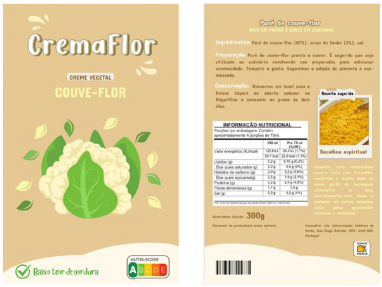
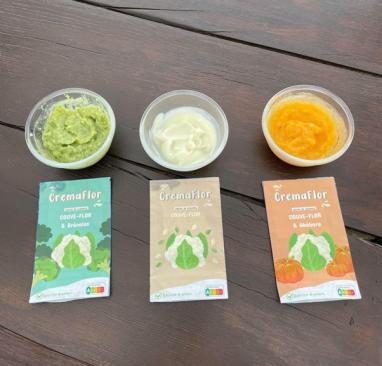
Another notable project was "Trinca Espinhas", developed by Daniela Maia, Gabriel Campos, Gabriela Pires, and Raquel Lage. Created by two nutritionists, an aquatic biologist, and a bioengineer, Trinca Espinhas is an innovative cracker made from fishbone flour, with a distinctive touch of rosemary. This snack was developed to promote sustainability in the agri-food sector by using fish by-products, contributing to waste reduction and the valorization of marine resources. Besides being tasty, Trinca Espinhas is a source of protein, calcium, and phosphorus, offering a nutritious option for consumers seeking sustainable and conscious food alternatives.
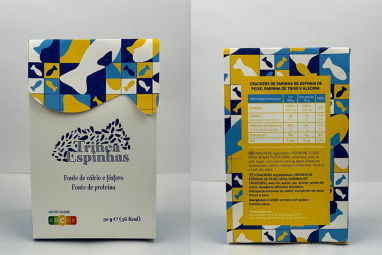
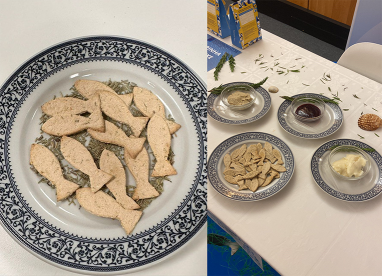
A special thanks to Comendador Arménio Miranda for his presence and valuable contribution, as well as to the entire jury. Congratulations to all the working groups involved for their dedication and creativity. These distinctions highlight the talent, innovation, and entrepreneurial spirit of our students, reinforcing the Faculty of Biotechnology's commitment to promoting academic excellence and sustainability.

